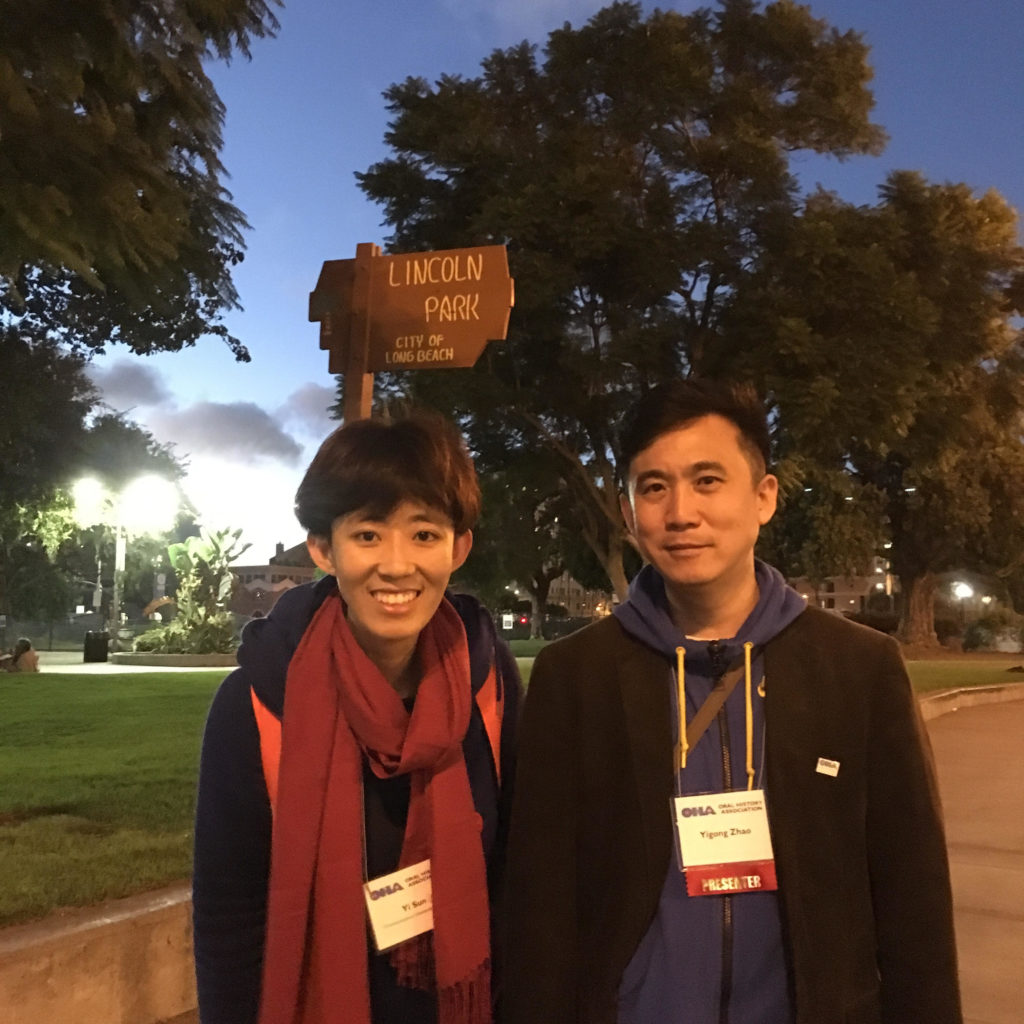Welcome to what we hope is one of many upcoming blogs! Our goal at the OHA Blog is to provide more member-driven content in order to create a space that allows for the expression of ideas and initiatives in oral history and to showcase our members.
For our first blog, Monica Sun writes about her mentor and friend Joseph Zhao, who she says “is extremely talented and experienced in doing oral history.” Joseph Zhao is with Cui Yongyuan Oral History Center of Communication at the University of China, and he is doing oral history projects while giving lectures in workshops and training programs. Besides being an oral historian, Joseph is a sports lover, and football is his strong suit. Alistair Thomson once compared oral historians to magpies because they have this exuberant zest of collecting various items. Joseph is collector of memories, books, coins, mini-sculptures…
Born in 1969, Joseph is a man with a natural gift of communicating and insatiable curiosity. He starred in the film “Saihu the Dog” when he was 12. After graduating from Beijing Film Academy, Joseph made several famous TV ads and then became the program planner of China’s first talk show, “To Be Honest”, in 1996. Thanks to a documentary series named “Story of Movie”, Joseph got a chance to make oral history interviews with old Chinese filmmakers, which is how he turned into a “memory collector”. In his own words, the first ten years of doing oral history is like an evolution from ape to human being.
In 2002, the documentary series came to an end and he made over 1,500 oral history interviews with old Chinese directors, actors, actress, cosmeticians, screenplay writers, concept artists, composers, editors, sound mixers and producers. This project is like a talking encyclopedia of Chinese filmmakers and a dynamic version of Chinese film history. Traditionally, only famous directors and actors could be written about in film history and the role of other film artists have been diminished in the development of film industry. This project is kind of like a panorama of Chinese film industry after the founding of New China in 1949.
Any oral historian would understand the dilemma of interviewing the elders: you have to give them enough time to rest given their health condition; at the same time you also wish to have a thorough conversation. Director Xie Jin’s narration amounted to nearly 20 hours, and the conversation was divided into 6 sessions since he could only do 3 to 4 hours per day. What’s worse, sometimes you are waiting for someone to accept your interview, but the only reply turns out to be an obituary. Joseph has become good friends with many of those film artists and he claims that drawing strength from their stories would be the most precious reward of doing oral history.
The oral history project that Joseph currently works on is “Zhiqing (educated youth) in Cultural Revolution”. Cultural Revolution, as an appellation of a series of political movements over nearly two decades, drags in more than 17 million youngsters who were sent to rural areas to be re-educated by peasants and created a “Cast-off Generation”. Up to now, Joseph has made nearly 500 oral history interviews with Zhiqing who come from more than 20 provinces in Mainland China. Their stories count an indispensable part of China’s contemporary history but were somehow erased from official historical records, making their stories even more rare and precious. “If each and every minute of the interviews could be broadcast on CCTV, then the oral history would be of no value.” Joseph always says the beauty of oral history is that you get a chance to learn about the history from a non-official perspective.
Almost every oral historian is talking about the excitement of listening to fabulous stories and meeting different people, but few have been talking about how to react to the miserable, even horrible stories. To those narrators, the conversation is like a healing process, and most of them took a great relief after sharing their “experienced” political movements. Some of the interviews would remain confidential for a long time, but they will be a valuable source for the future generations to learn about their nation and predecessors.
If you are interested in writing a blog for the OHA, please email oha@gsu.edu for more details.
